The Covenant of Water by Abraham Verghese is a captivating novel set in Kerala, India, spanning 1900 to 1977. It explores a family’s multi-generational curse of drowning, blending faith, culture, and tragedy, with the PDF widely available online.
Overview of the Novel
The Covenant of Water by Abraham Verghese is a sweeping narrative that explores the lives of a Christian family in Kerala, India, spanning three generations from 1900 to 1977. The story begins with the marriage of a young girl, Mariamma, to a widower, setting the stage for a tale of love, loss, and legacy. Central to the novel is a mysterious affliction known as “The Condition,” where at least one family member per generation dies by drowning. Set against the lush backdrop of Kerala’s water-dominated landscape, the novel weaves themes of faith, culture, and the enduring power of family bonds. Verghese’s masterful storytelling delves into the intersections of medicine, spirituality, and tradition, creating a deeply emotional and immersive experience. The novel’s historical and cultural richness, combined with its universal themes, has resonated with readers worldwide, solidifying its place as a modern literary masterpiece. The PDF version of the book is widely available, offering readers convenient access to this epic tale.
Author Background: Abraham Verghese
Abraham Verghese, a renowned physician and author, brings a unique blend of medical expertise and literary talent to his works. Born in Ethiopia to Indian parents, Verghese grew up in a multicultural environment that deeply influenced his writing. He pursued his medical education in India and later moved to the United States, where he became a professor of medicine. Verghese gained widespread acclaim for his debut novel, Cutting for Stone, which became a bestseller and established him as a masterful storyteller. His writing often explores themes of identity, family, and the intersection of medicine and humanity. Verghese’s background as a physician adds depth and authenticity to his narratives, making his stories both emotionally resonant and intellectually engaging. His latest novel, The Covenant of Water, continues this tradition, blending historical fiction with a poignant family saga.

Historical and Cultural Context
The Covenant of Water is set in Kerala, India, from 1900 to 1977, exploring a region steeped in tradition, where water is both life-giving and a recurring symbol of tragedy.
Setting: Kerala, India (1900-1977)
The Covenant of Water unfolds in Kerala, India, a region on the Malabar Coast, between 1900 and 1977. This lush, tropical landscape is defined by its vast water bodies, including rivers, backwaters, and the Arabian Sea. The novel vividly portrays Kerala’s cultural richness, with its vibrant traditions, colonial influences, and the blending of Christian and local customs. The setting plays a crucial role in shaping the family’s identity and their unique curse, as water becomes both a source of life and a recurring symbol of tragedy. The time span captures societal shifts, from colonial rule to post-independence changes, adding historical depth to the narrative. The interplay of Kerala’s natural beauty and its complex history creates a compelling backdrop for the story’s exploration of family, faith, and resilience.
Cultural Significance of Water in Kerala
Water holds profound cultural and symbolic significance in Kerala, as depicted in The Covenant of Water. The region’s abundant water bodies, including rivers, backwaters, and coastal areas, are central to daily life and traditions. Water is revered in religious rituals, festivals, and art forms, symbolizing purification and spiritual renewal. The annual boat races, such as the Vallamkali, highlight water’s role in community bonding and celebration. In the novel, water’s omnipresence mirrors its dual role as a life-giving force and a harbinger of tragedy, reflecting the delicate balance between nature and human existence. This duality underscores Kerala’s deep connection to water, embedding it as a recurring motif in both the cultural fabric and the family’s cursed legacy. The PDF version of the novel beautifully captures this intricate relationship, enriching the reader’s understanding of Kerala’s unique cultural landscape.
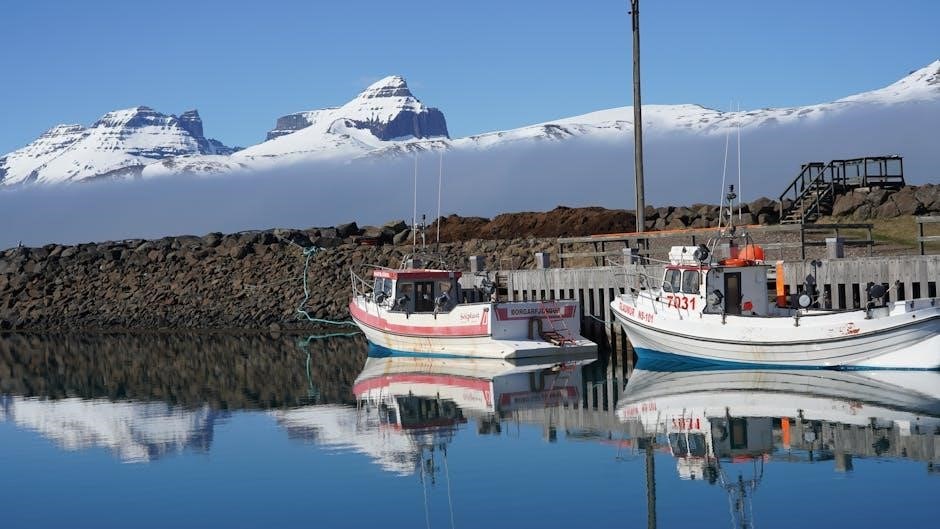
The Family’s Curse
The Family’s Curse in The Covenant of Water involves a generations-long affliction of drowning deaths, set in water-abundant Kerala, explored deeply in the PDF.
The Affliction: Drowning Across Generations
In The Covenant of Water, a mysterious affliction plagues a Kerala family for generations, with at least one member drowning each generation. This curse, rooted in their unique history and the pervasive presence of water in Kerala, shapes their destiny and family dynamics. The novel, available as a PDF, explores how this tragedy intertwines with faith, culture, and identity, creating a haunting yet deeply human story. Verghese masterfully weaves this curse into the fabric of the narrative, highlighting its emotional and psychological impact. The affliction becomes a metaphor for the inescapable forces of fate and tradition, enriching the novel’s exploration of family, legacy, and resilience.
Impact on Family Dynamics
The curse of drowning across generations profoundly shapes the family dynamics in The Covenant of Water; Fear and tension permeate relationships, as each family member lives under the shadow of an inevitable tragedy. The affliction fosters a complex interplay of guilt, protective instincts, and existential dread, influencing decisions and interactions. Marriage alliances, like Mariamma’s wedding to a widower, are often tinged with sacrifice and duty. The curse also strengthens bonds, as the family clings to one another in the face of an unexplainable fate. Verghese explores how this shared burden molds their identities and reinforces cultural and religious beliefs. The novel, available as a PDF, delves into the emotional and psychological toll of living with a generations-long affliction, creating a poignant portrayal of love, loss, and resilience.

Themes Explored in the Novel
The Covenant of Water delves into themes of family, legacy, faith, and cultural identity, weaving them into a rich narrative that explores the interplay between tradition and personal destiny. The PDF highlights these elements vividly.
Family and Legacy
Family and legacy are central themes in The Covenant of Water, as the novel traces a Malayali family’s history across three generations. The narrative explores how each generation grapples with a mysterious affliction known as “The Condition,” where family members die by drowning. This curse becomes a defining element of their legacy, shaping their identities and relationships. The PDF version of the book intricately details how the family’s history is intertwined with their cultural and religious roots in Kerala, India. Through the lives of characters like Mariamma, the story examines the burden and privilege of inherited traditions. Verghese masterfully portrays how legacies of love, loss, and resilience bind families together, even as they face profound challenges. The novel’s exploration of family dynamics offers a poignant reflection on the enduring power of blood ties and inherited destinies, making the PDF a compelling read for those interested in multi-generational sagas.
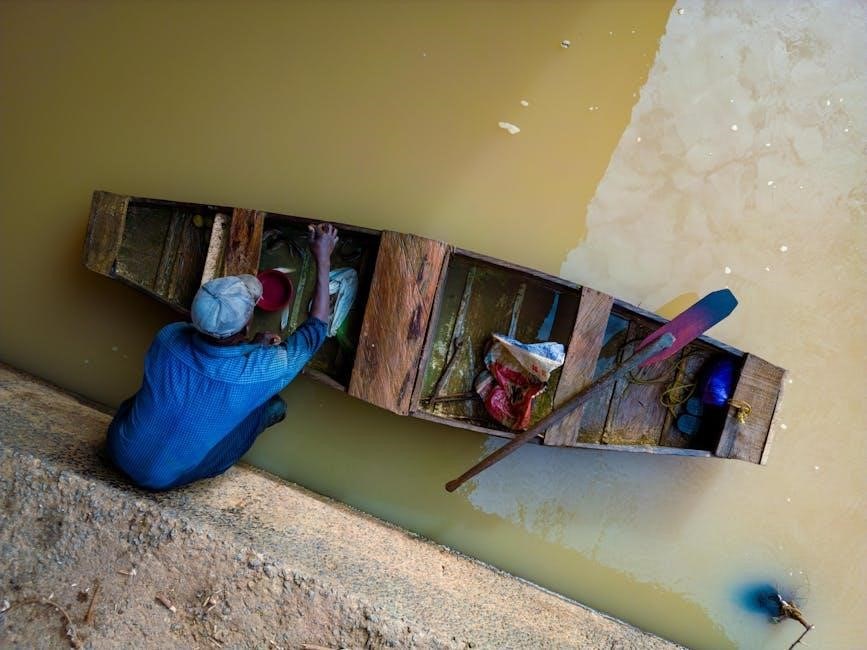
Culture and Tradition
The Covenant of Water deeply explores the rich cultural tapestry of Kerala, India, where water is not just a natural element but a symbol of life, spirituality, and tradition. The novel delves into the unique customs and practices of the Malayali Christian community, tracing their origins and beliefs. Verghese vividly portrays the interplay between faith and daily life, highlighting rituals and cultural practices that define the family’s identity. The PDF version of the book offers a detailed glimpse into Kerala’s vibrant traditions, from weddings to religious ceremonies, set against the backdrop of a society shaped by colonial influences. The story’s cultural depth is enhanced by its historical context, spanning from 1900 to 1977, and the ways in which traditions evolve while remaining central to the family’s legacy. This exploration of culture and tradition makes the PDF a valuable resource for understanding Kerala’s heritage and its role in shaping the narrative.

Faith and Spirituality
The Covenant of Water intricately weaves faith and spirituality into its narrative, reflecting the profound role of religion in the lives of the Malayali Christian family. The novel explores themes of divine providence, prayer, and the search for meaning amidst suffering. Verghese portrays how faith serves as both a source of comfort and a moral guide, influencing decisions and shaping identities. The PDF version highlights the family’s spiritual struggles and their reliance on religious rituals to cope with their affliction. The story also delves into the intersection of tradition and modernity, showing how faith evolves yet remains central to their lives. This exploration of faith adds depth to the narrative, making the PDF a compelling read for those interested in the spiritual dimensions of human experience.

Reception and Popularity
The Covenant of Water became an instant New York Times bestseller and an Oprah’s Book Club Pick, selling over two million copies worldwide, solidifying its acclaim and popularity.
Oprah’s Book Club Selection
Oprah’s Book Club selected The Covenant of Water as one of its featured picks, significantly boosting its popularity. This endorsement highlighted the novel’s emotional depth and universal themes, resonating with a wide audience; Oprah herself hosted a six-part Super Soul Podcast series dedicated to the book, further amplifying its reach. The selection underscored Verghese’s masterful storytelling, drawing readers into the intricate world of a Kerala family grappling with faith, identity, and generational curses. The book’s inclusion in Oprah’s Club not only elevated its status but also sparked meaningful conversations about family, legacy, and cultural heritage, solidifying its place as a modern literary masterpiece; This recognition played a pivotal role in making The Covenant of Water a must-read for book clubs and individual readers alike.
Bestseller Status and Sales Figures
The Covenant of Water achieved remarkable success, debuting as an Instant New York Times Bestseller and topping indie charts. It sold over two million copies worldwide, solidifying its bestseller status. The novel’s popularity was further boosted by its selection for Oprah’s Book Club, which significantly increased its visibility and appeal. As a follow-up to Verghese’s acclaimed Cutting for Stone, which sold over 1.5 million copies in the U.S., The Covenant of Water continued the author’s legacy of crafting compelling narratives. Its sales figures and widespread acclaim highlight the novel’s resonance with readers, making it a standout in contemporary literature. The book’s success also led to its availability in various formats, including PDF, ensuring accessibility for a global audience.
PDF Availability and Access
The Covenant of Water PDF is widely available for download across various platforms, ensuring easy access for readers worldwide to Abraham Verghese’s captivating narrative.
Downloading the PDF
Downloading The Covenant of Water PDF is convenient, with the file readily available on various platforms like Amazon, Google Books, and specialized PDF repositories. The PDF spans 689 pages, offering an immersive reading experience. Readers can access it through direct downloads or e-book platforms, ensuring easy availability worldwide. Many websites provide free or paid options, catering to different preferences. The file size is manageable, typically around 4-5 MB, making it easy to store on devices. To ensure safety, it’s advisable to download from reputable sources to avoid malware risks. The PDF format preserves the book’s original formatting, enhancing readability. This accessibility has contributed to its popularity, allowing fans of Abraham Verghese to engage with his work seamlessly. The download process is straightforward, making The Covenant of Water easily accessible to a global audience.
Popular Platforms for Access
The Covenant of Water PDF is accessible through various platforms, ensuring widespread availability. Major e-book retailers like Amazon Kindle and Google Play Books offer the novel for purchase or download. Additionally, platforms like Telegram and PDF Room provide direct links for easy access. Many online libraries and book-sharing communities also host the file, catering to readers who prefer free access. For those preferring verified sources, the PDF can be downloaded from the publisher’s official website or through services like Scribd. These platforms ensure that readers can access Abraham Verghese’s masterpiece conveniently, regardless of their preferred method of reading. The availability across multiple platforms highlights the book’s popularity and demand, making it easily accessible to a global audience.
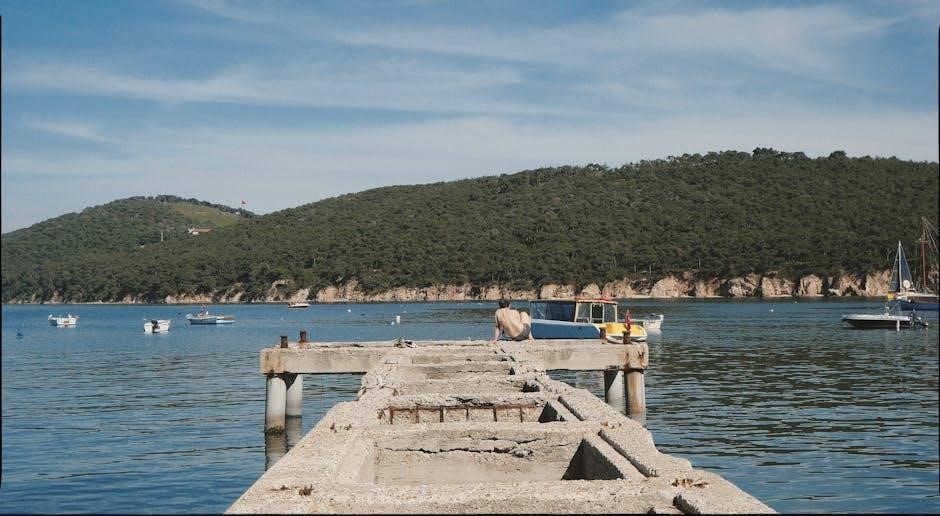
E-book Popularity and Convenience
The PDF format of The Covenant of Water has gained immense popularity due to its convenience and accessibility. E-books offer readers the ability to carry multiple titles in one device, making it ideal for travelers and avid readers. The digital version ensures that the novel reaches a global audience instantly, eliminating geographical barriers. Features like adjustable font sizes, night reading modes, and bookmarking enhance the reading experience. Additionally, the PDF file size is manageable, allowing seamless downloads even on slower internet connections. The e-book’s popularity is further boosted by its inclusion in Oprah’s Book Club, driving demand and making it a bestseller. With over two million copies sold worldwide, the digital version remains a preferred choice for many, showcasing the modern reader’s preference for convenience without compromising on quality. This accessibility has cemented its place as a modern literary favorite.
Cultural and Symbolic Elements
The Covenant of Water richly explores Kerala’s cultural tapestry, with water symbolizing both life and death. The PDF highlights Verghese’s vivid portrayal of traditions and the region’s spiritual essence, immersing readers deeply.
Kerala’s Water Symbolism
Kerala’s abundant water bodies are central to The Covenant of Water, symbolizing both sustenance and peril. The PDF reveals how rivers, backwaters, and the ocean mirror life’s duality, reflecting themes of destiny and renewal while intertwining with the family’s tragic curse. Verghese masterfully uses water as a metaphor for spiritual and emotional depth, embedding it into Kerala’s cultural fabric. The novel’s imagery evokes the region’s lush landscapes, where water is everywhere yet also a harbinger of mystery and danger. Through this symbolism, Verghese crafts a narrative where water becomes a character in itself, shaping the family’s history and fate. The PDF version beautifully preserves this intricate symbolism, offering readers a vivid connection to Kerala’s unique environment and its profound influence on the story.
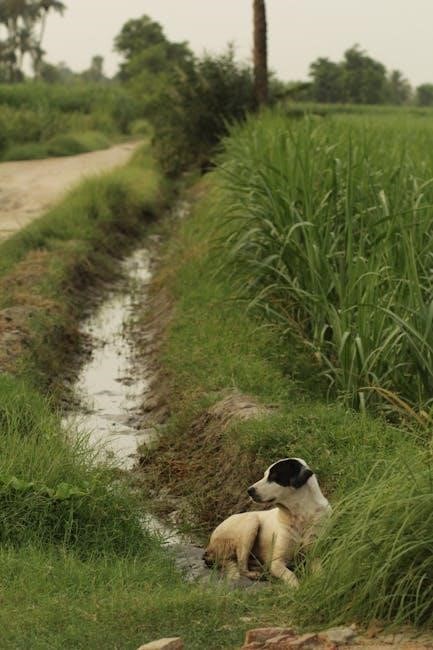
Medical and Mystery Elements
The Covenant of Water masterfully intertwines medical insights with mystery, as Verghese’s background in medicine adds depth to the narrative. The PDF highlights the family’s unexplained affliction, where each generation faces a mysterious drowning, blending science and superstition. Verghese’s meticulous detail in describing medical conditions and treatments enriches the story, while the curse remains shrouded in enigma. This duality captivates readers, drawing them into a world where faith and reason collide. The novel’s suspenseful elements keep readers engaged, as they unravel the mystery alongside the characters. The PDF format ensures that these intricate elements are preserved, offering a seamless reading experience that explores the interplay between medicine and the unknown, making The Covenant of Water a compelling read.

Author’s Influence and Style
Abraham Verghese’s lyrical prose and medical expertise enrich The Covenant of Water. His vivid storytelling and emotional depth, shaped by his experiences, captivate readers in the PDF.
Comparison with “Cutting for Stone”
Abraham Verghese’s The Covenant of Water shares thematic echoes with his bestselling Cutting for Stone. Both novels explore family legacies, cultural identity, and medical themes. Verghese’s masterful storytelling weaves intricate narratives, blending personal and communal histories. While Cutting for Stone focuses on twins in Ethiopia, The Covenant of Water delves into a Kerala family’s generational curse. Both works exhibit Verghese’s signature lyrical prose and emotional depth, captivating readers with richly drawn characters and settings. The success of Cutting for Stone, which sold over 1.5 million copies, set high expectations for The Covenant of Water, which has also achieved bestseller status and critical acclaim.
Abraham Verghese’s Writing Style
Abraham Verghese’s writing in The Covenant of Water is characterized by lyrical prose, vivid imagery, and a deep connection to his characters’ emotional journeys. His storytelling seamlessly blends historical context with personal narratives, creating a rich tapestry of family, culture, and faith. Verghese’s ability to weave medical elements into the plot adds a unique layer of depth, reflecting his background as a physician. His descriptive language paints the lush landscapes of Kerala, immersing readers in the setting. The novel’s pacing is deliberate, allowing for introspection and emotional resonance. Verghese’s masterful style has earned him acclaim, making The Covenant of Water a compelling read that resonates long after the final page.
The Covenant of Water is a profound exploration of family, faith, and cultural heritage, leaving readers with a lasting emotional resonance and appreciation for Verghese’s masterful storytelling.
Impact of “The Covenant of Water”
The Covenant of Water has left a profound impact on readers worldwide, resonating deeply with its exploration of family, faith, and cultural identity. Verghese’s masterful storytelling weaves a poignant tale of love, loss, and legacy, captivating audiences and sparking meaningful conversations. The novel’s unique blend of historical fiction, medical intrigue, and mystical elements has solidified its place as a contemporary literary masterpiece. Its selection as an Oprah’s Book Club Pick further amplified its reach, introducing it to a diverse audience. The book’s themes of resilience and redemption have struck a chord, encouraging readers to reflect on their own connections to heritage and tradition. With over two million copies sold globally, The Covenant of Water has not only achieved commercial success but also cemented its influence on modern literature, making it a must-read for fans of expansive, emotionally rich narratives.
Reader Engagement and Reviews
Readers have been deeply moved by The Covenant of Water, praising its emotional depth and vivid storytelling. The novel’s exploration of family secrets, cultural traditions, and the mysterious curse has sparked lively discussions in book clubs and online forums. Many reviewers highlight Verghese’s ability to craft relatable characters and his meticulous attention to historical detail, which immerses readers in the world of early 20th-century Kerala. The book’s emotional resonance has left a lasting impact, with readers reflecting on themes of faith, love, and resilience. Its selection as an Oprah’s Book Club Pick further boosted its popularity, attracting a wide audience. The PDF version has also been praised for its accessibility, allowing readers worldwide to engage with this powerful story. Overall, The Covenant of Water has become a favorite among readers seeking compelling, thought-provoking literature.
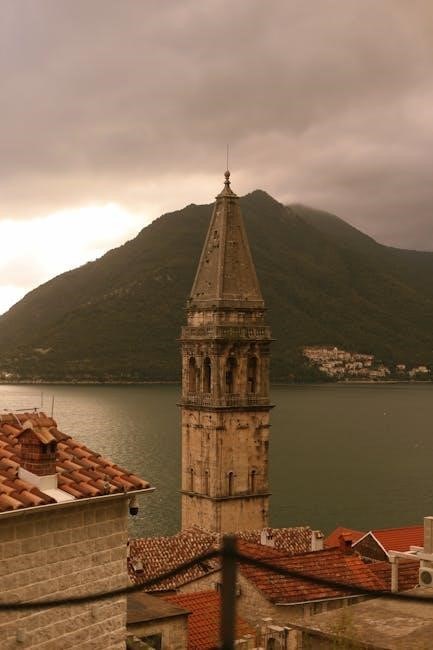
No Responses